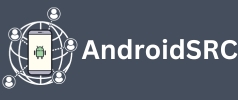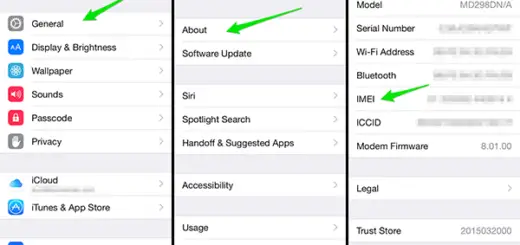Does *67 Still Work? Unveiling the Truth
Have you ever wondered if using *67 on your phone still works? In this blog, we will unveil the truth behind this mysterious feature. We will start by explaining what *67 means and how it works. Then, we will address the burning question – does *67 still work? We’ll dive into the specifics of caller ID display on both landline and mobile phones, as well as its impact on other devices.
But it doesn’t stop there! We’ll also explore the legal and ethical considerations surrounding the use of *67. You’ll learn about the laws regarding its usage and the ethics behind it. And if you’re looking for alternatives to *67, we’ve got you covered too. We’ll discuss secondary phone number apps, caller ID blocking services, and voice-over-IP (VoIP) solutions. Plus, we’ll even share tips on hiding your number on Android devices and using a burner number instead of hiding your caller ID.
And if you’re curious about which countries *67 works in or the difference between *67 vs *69, we’ll cover those topics too. Get ready to uncover the truth behind *67!
What Does *67 Mean on Your Phone?
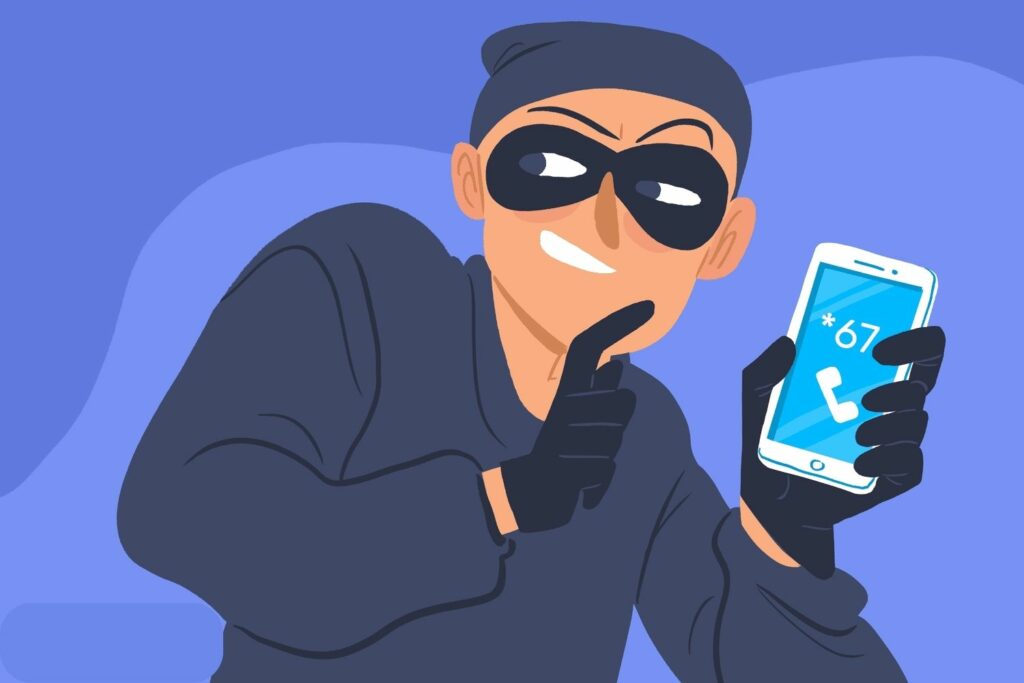
*67 is a feature code that you can use on your phone to block your caller ID information from being displayed to the person you are calling. When you dial *67 before making a call, the recipient of your call will see “Blocked” or “Private Number” on their caller ID display, instead of your actual phone number.
This feature can be useful if you want to maintain your privacy and keep your phone number from being easily accessible to the person you are calling. It’s often used in situations where you may want to make an anonymous call or prevent the person you’re calling from knowing your phone number for any reason.
Keep in mind that while this feature hides your caller ID from the recipient, it doesn’t make the call completely untraceable, as phone companies and law enforcement agencies may still have access to the information.
How *67 work?
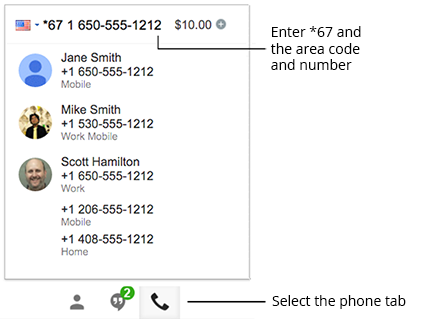
The *67 feature works by instructing your phone’s carrier to block your caller ID information from being transmitted to the recipient’s caller ID display. When you dial *67 before entering the phone number you wish to call, the following steps typically occur:
- Initiating the Feature: You start by dialing *67 on your phone’s keypad, just like you would dial a regular phone number.
- Code Recognition: Your phone’s operating system recognizes the *67 code as a request to block caller ID information for the next call.
- Carrier Communication: When you dial the number you want to call after *67, your phone communicates with your wireless carrier’s network.
- Caller ID Blocking Request: Your carrier’s network adds a special flag or instruction to the call request, indicating that your caller ID information should be blocked for this call.
- Recipient’s Carrier: The call request, along with the caller ID blocking instruction, is sent to the recipient’s wireless carrier.
- Recipient’s Phone: The recipient’s phone receives the call and processes the caller ID information. However, due to the blocking instruction, the caller ID information is not displayed on the recipient’s caller ID display.
- Display on Recipient’s Phone: Instead of showing your actual phone number, the recipient’s phone may display “Blocked,” “Private Number,” “Restricted,” or a similar message to indicate that the caller’s identity has been hidden.
Does *67 still work?
Yes, *67 still remains an effective way to block your caller ID in most countries. By dialing *67 before a phone number, you can ensure that your identity is kept private. However, it’s worth noting that the effectiveness of *67 may vary depending on your phone carrier and region. Always consult with your service provider for specific instructions on using *67 to block your caller ID.
Caller ID display on landline phones
Caller ID display on landline phones is an important feature for many users. *67 still works on most landline phones to block caller ID information. By using *67 before dialing a number, you can prevent your name and number from being displayed to the recipient. This is particularly useful in situations where privacy concerns or instances of not wanting to reveal your identity arise.
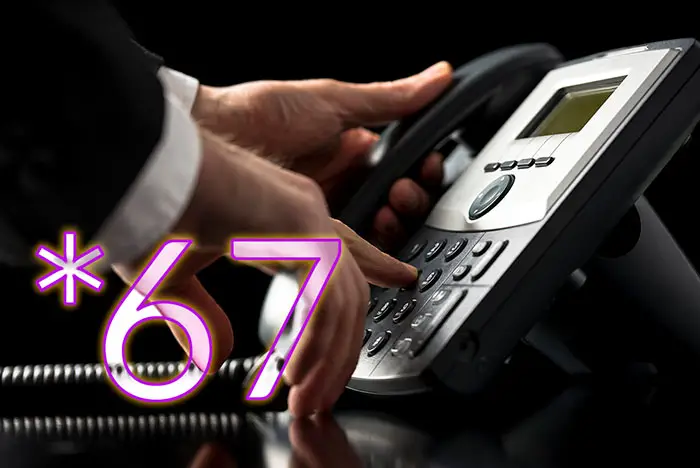
However, it’s worth noting that some recipients may have caller ID blocking services in place, which can prevent *67 from effectively hiding your information. It’s also important to remember that *67 does not work for emergency services or toll-free numbers.
Caller ID display on mobile phones
Caller ID display on mobile phones continues to be a concern for many individuals. Fortunately, *67 still works as an effective tool to block your caller ID from being displayed. By using *67 before dialing a number, you can ensure that your phone number remains private and undisclosed to the call recipient.
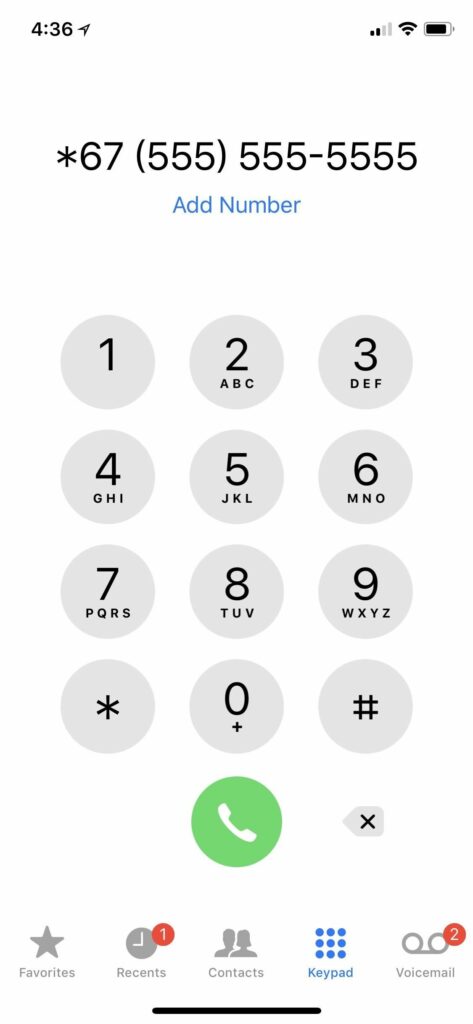
It’s worth noting, though, that some mobile carriers may charge a fee for using *67. Nonetheless, this feature is instrumental in maintaining privacy and preventing your phone number from being easily visible.
Impact of *67 on other devices
*67 only hides caller-ID for the recipient’s phone, not other devices like call logs or service provider records. It does not affect the ability to track calls or trace them back to the source if necessary. Although *67 is a widely recognized feature, it’s important to note that some devices may still display caller ID even if *67 is used, making it not foolproof for complete anonymity.
Additionally, using *67 does not exempt you from following any laws or regulations regarding privacy or harassment. Its effectiveness may vary depending on the specific device or service being used.
Legal and ethical considerations – Does *67 still work?
Using *67 to block caller ID information is a feature that raises legal and ethical considerations. Its legality varies by jurisdiction, so it’s crucial to be aware of local laws. Ethically, *67 can be acceptable for protecting personal privacy, but it should never be used for illegal or harmful activities.
Laws regarding the use of *67
The use of *67 is legal in most jurisdictions for personal and business calls. However, it’s important to be aware of any local or state regulations that may restrict its use. It is generally considered unethical to use *67 for fraudulent or malicious purposes.
In emergency situations, it is recommended to avoid using *67 to ensure accurate caller identification. Ultimately, the legality and ethics of using *67 depend on the specific circumstances and intent behind its use.
Ethics of using *67
Using *67 to hide your caller ID can raise ethical concerns regarding trust and privacy. Some argue that it may be acceptable in specific situations, like making an important anonymous tip.
However, others believe that it’s ethically preferable to always disclose your identity when making a call. It’s crucial to consider the potential consequences and impact of using *67 before determining whether it aligns with your personal ethics.
Alternatives to *67 – Does *67 still work?
Third-party apps and contacting your phone service provider are options to explore. Some apps even allow you to block your caller ID permanently or selectively for certain calls. Always check with your provider for available options.
Other codes to use instead of *67:
#31#
The “#31#” code is used as a feature code to withhold your caller ID when making a phone call. When you dial #31# followed by the phone number you want to call, your caller ID information is blocked and the recipient of the call won’t see your phone number displayed on their caller ID screen. Instead, they might see “Private Number” or something similar, depending on their device and carrier.
Secondary Phone Number Apps
Secondary phone number apps provide a convenient and anonymous way to make calls without revealing your personal number. These apps offer additional features such as call forwarding, voicemail, and text messaging. With secondary phone number apps, you can choose different numbers for different purposes, whether it’s for business or dating.
These apps are compatible with both iOS and Android devices, making them accessible to a wide range of users. They also ensure privacy and security, giving you control over who can contact you.
Caller ID blocking services
Caller ID blocking services provide the option to hide your phone number when making outgoing calls. Many phone carriers offer built-in caller ID blocking features, while third-party apps and services also provide this functionality. However, it’s important to note that caller ID blocking is not foolproof and may not work in certain situations.
To explore your options and ensure compatibility with your service provider, it’s recommended to check with them directly. By utilizing caller ID blocking, you can maintain privacy and control over the information being displayed to the call recipient.
Voice-over-IP (VoIP) solutions
Voice-over-IP (VoIP) solutions offer alternative ways to mask your Caller ID, providing greater control over your Caller ID privacy. With VoIP services, you often have the option to block or display a different number when making calls. This technology continues to evolve, offering more features and flexibility for caller anonymity.
To find the best VoIP solution for your needs, explore different providers and their offerings. VoIP allows you to maintain your privacy while making phone calls, ensuring that your Caller ID remains private and secure.
Why Do I Need To Use *67?
Maintaining privacy and anonymity is important in certain situations. *67 allows you to block your caller ID, preventing your number from appearing on the recipient’s caller ID. This feature is especially useful when you want to keep your contact information private while making a phone call.
Extra Income
If you’re looking for ways to earn some extra income, using *67 can be a helpful tool. By hiding your phone number when making calls, you can maintain your privacy and present a professional image, especially if you work from home. It also allows you to conduct market research or gather information anonymously.
Furthermore, using *67 can protect your personal phone number from being shared and help prevent unwanted solicitations or calls from telemarketers. So consider utilizing this feature to make extra income while preserving your privacy.
Online Dating
Using *67 before making a call can offer a layer of privacy when reaching out to potential dates online. By blocking your caller ID, *67 prevents your phone number from being displayed to the recipient. This feature can be particularly valuable during the initial stages of online dating when you may not want to disclose personal information.
*67 allows you to retain control over who has access to your contact details, enabling you to maintain a sense of security. Remember to use *67 responsibly and in accordance with local caller ID blocking laws and regulations.
Online Shopping
When it comes to online shopping, using *67 can provide an extra layer of privacy and protect your personal information. By dialing *67 before making a purchase, you can prevent retailers from having access to your phone number and contacting you for marketing purposes.
This simple yet effective method allows you to maintain your privacy and avoid unwanted phone calls or text messages. Before using *67 for added security, make sure to check if the online platform supports this feature.
Privacy Concerns
Using *67 when making phone calls can address privacy concerns by hiding your caller ID. This feature protects your identity and prevents your phone number from being displayed to the recipient. It’s especially useful for sensitive or anonymous calls where confidentiality is paramount.
By using *67, you have control over who sees your phone number, ensuring that your personal information remains private. This helps prevent unwanted calls, harassment, or your contact details from falling into the wrong hands. With *67, you can have peace of mind knowing that your privacy is safeguarded during phone conversations.
How To Hide A Number Beginning With * 67 On Android?
Concealing your phone number on an Android device is a simple and straightforward process, outlined below:
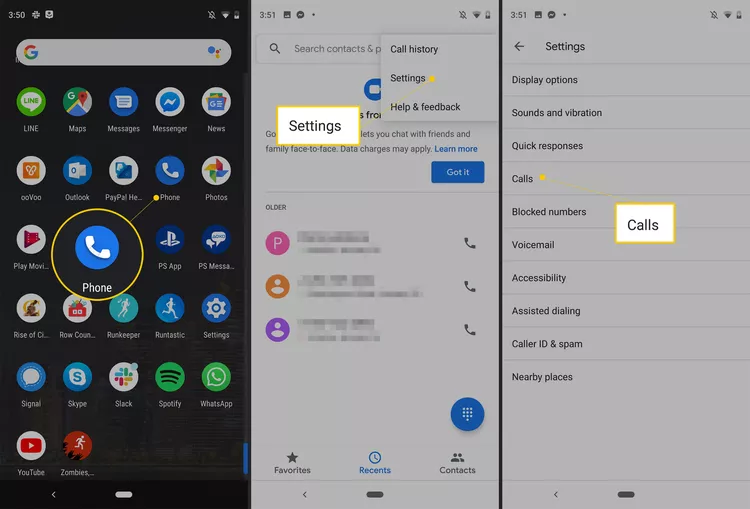
- Locate and tap the “Phone” icon located at the bottom of your Android device’s screen.
- Navigate through the Android smartphone’s interface until you find the search bar, near which you’ll see three dots forming a dropdown menu.
- Access the menu and choose “Preferences.”
- Proceed by selecting the “Calls” section.
- Opt for “Additional Configuration options.”
- Look for and choose the “Caller ID” option.
- Finally, tap the icon to hide your number within the pop-up interface on your Android device.
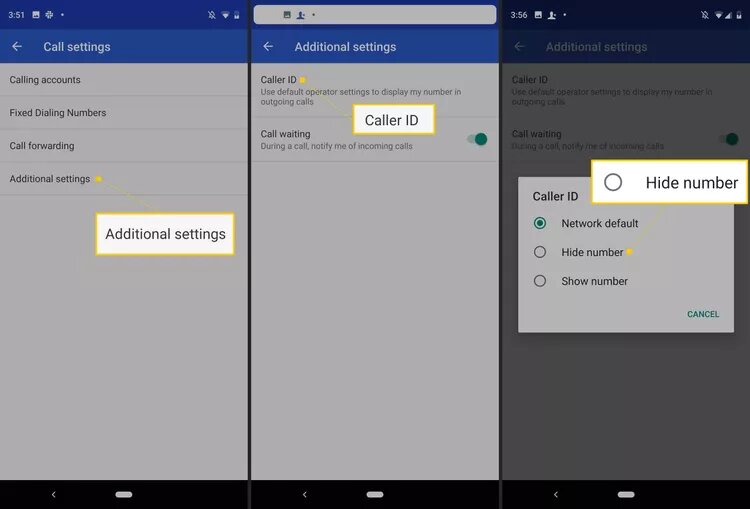
Use a Burner Number Instead of Hiding Your Caller ID
If you want to maintain privacy when making phone calls, using a burner number is an effective alternative to hiding your caller ID with *67. While *67 can conceal your caller ID, it may not work on all phone networks.
By using a burner number, which is a temporary phone number, you can enjoy a higher level of anonymity and easily dispose of it when no longer needed. This helps protect your privacy and prevents unwanted calls or harassment.
How to Block Your Caller ID on an Android Device
The process may vary depending on your Android phone and dialer app. Here are two common methods to block your caller ID:
Method 1:
- Launch the Phone app and access the Menu located in the top-right corner.
- Navigate to Settings and scroll down to find Supplementary Services. On some devices, this might be under Calls > Additional Settings.
- Tap “Show your caller ID” and select “Never show your number” from the popup menu.
If this doesn’t yield results, you can attempt a different set of steps:
Method 2:
- Open the Phone app again and tap on Menu, then go to Settings.
- Choose “Calling accounts” and select your carrier’s name under Settings.
- Access “Additional settings.”
- Tap “Caller ID” and choose “Hide number” to block your caller ID for all calls.
How to Block Your Caller ID With AT&T or T-Mobile
Blocking your caller ID is typically achievable through device settings on AT&T and T-Mobile. Refer back to the earlier section to locate this option on your specific phone.
If you’re unable to block your number via device settings, you should reach out to the customer support line of AT&T or T-Mobile. To contact them, dial 611 from your smartphone.
When connected to a customer service operator, kindly explain your intention to conceal your caller ID. They possess the capability to implement the required adjustments to your account accordingly.
How to Block Your Caller ID With Verizon
While Verizon doesn’t offer caller ID blocking directly through your iPhone or Android settings, you can achieve this through the Verizon website or the My Verizon app.
For the Verizon website method, follow these steps:
- Visit the Blocks page and log in to your account.
- Navigate to Block Services.
- On a smartphone, tap the Add button.
- Locate the Caller ID under Additional Services and toggle it On to block your number.
To utilize the My Verizon app, follow these steps:
- Download the My Verizon app for free from the App Store or Google Play Store.
- Sign in to your Verizon account within the app.
- Open the Menu and select Plans & Devices.
- Choose your smartphone, then proceed to View Details > Block specific services.
- Enable the option for Caller ID Blocking.
Please note that for detailed instructions, it’s advisable to refer to the Verizon website or the My Verizon app, and follow the specific steps provided there.
Does *67 block your number?
Yes, the *67 feature is used to block or hide your caller ID information when making a phone call. When you dial *67 before entering the recipient’s phone number, your caller ID will be blocked, and the person you’re calling will see “Private Number” or “Unknown Caller” on their caller ID display instead of your actual phone number.
Which Countries does *67 work in?
The *67 feature for blocking caller ID is primarily associated with North American telephone systems, including the United States and Canada. It’s important to note that the use of *67 or similar codes to block caller ID may not be universal and could vary from country to country.
In Mexico, India, Australia, Pakistan, Italy, and the United Kingdom, this specific code does not work to hide caller ID.
In other countries, different codes or methods might be used to achieve a similar result of hiding caller ID information when making calls. If you’re in a country other than the United States or Canada and wish to block your caller ID, I recommend checking with your local telecommunications provider or researching the specific code or method that applies in your region.
What is the difference between *67 vs *69?
Both *67 and *69 are special codes used in North American telephone systems, but they serve different purposes:
- *67 (Caller ID Blocking): When you dial *67 before making a call, it blocks your caller ID information from being displayed to the person you are calling. The recipient of your call will see “Blocked,” “Private Number,” or a similar message on their caller ID display, indicating that the caller’s identity has been hidden. This feature is used when you want to make an anonymous call or keep your phone number private.
- *69 (Call Return): *69, also known as “Call Return,” is a feature that allows you to quickly call back the last person who called you. When you dial *69, the system will automatically redial the last incoming call, connecting you to that caller. This is useful if you missed a call and want to find out who it was or return the call.
It’s important to note that the availability and functionality of these codes might vary depending on your telephone service provider and region. Additionally, *69 does not reveal the caller’s identity if their caller ID was blocked using *67. If the caller used *67 to hide their number, *69 would still call the blocked number, but the recipient’s caller ID might still display “Blocked” or “Private Number.“
Conclusion
In conclusion, *67 still works as a method to hide your caller ID on both landlines and mobile phones. However, it is important to understand the legal and ethical considerations surrounding its use. While it can be useful in certain situations such as protecting privacy or avoiding unwanted calls, it is essential to use it responsibly and within the boundaries of the law.
Additionally, there are alternative options available such as using secondary phone number apps or caller ID blocking services. Ultimately, the decision to use *67 or explore other options depends on your specific needs and circumstances.
